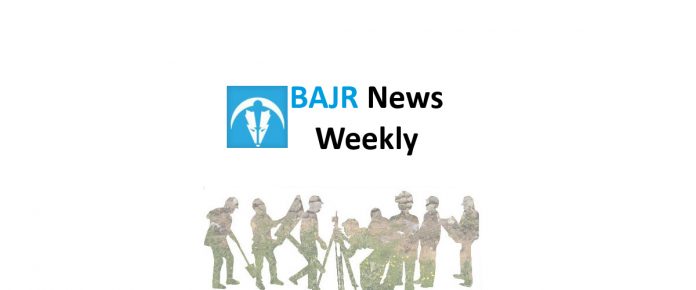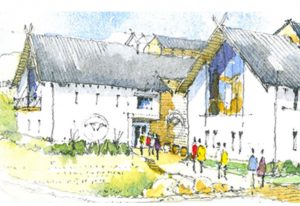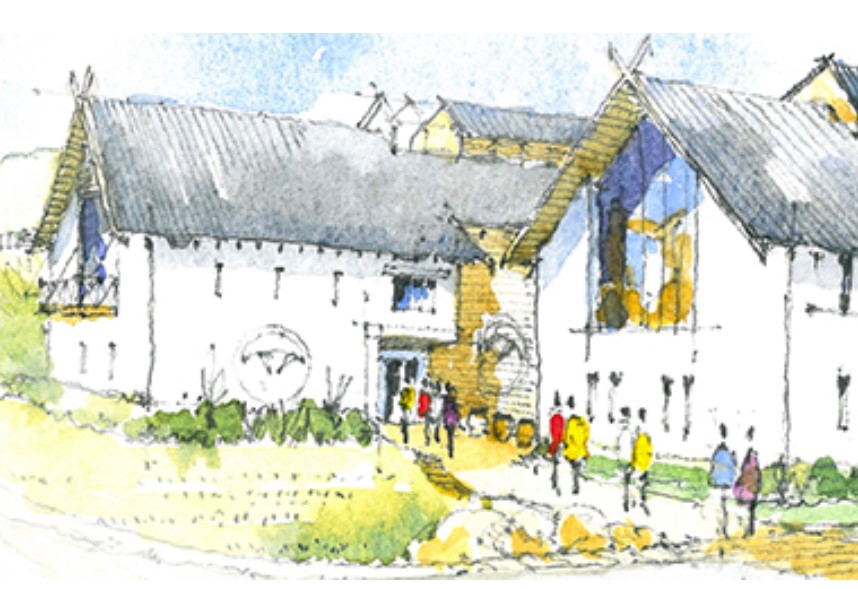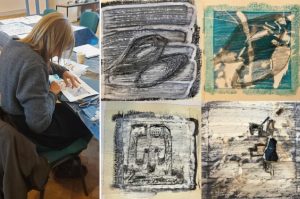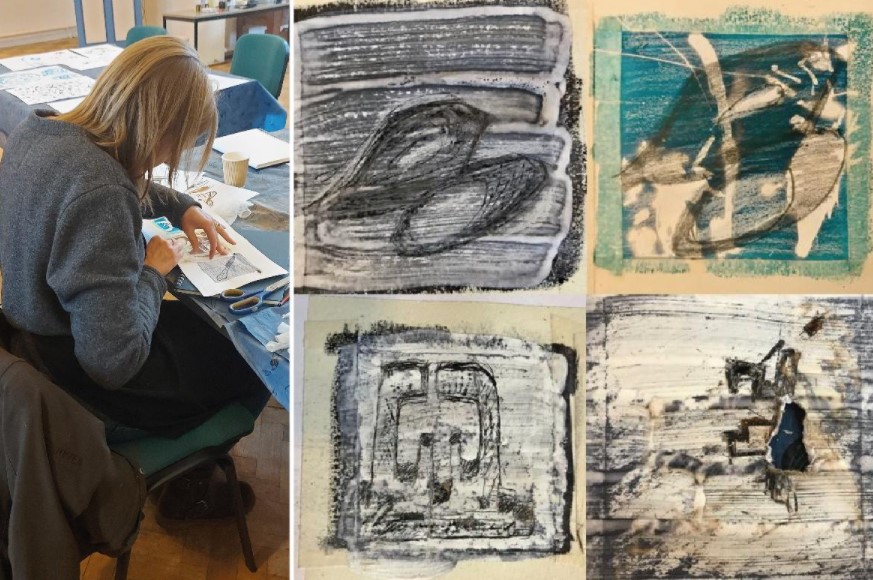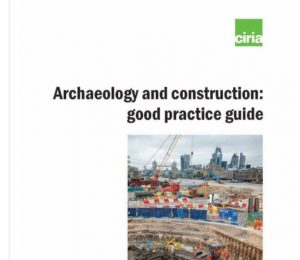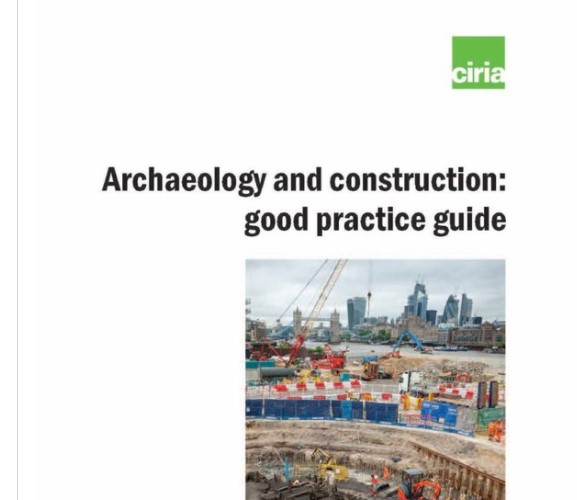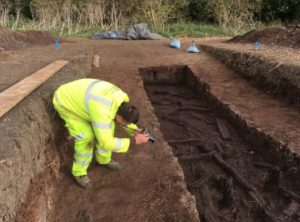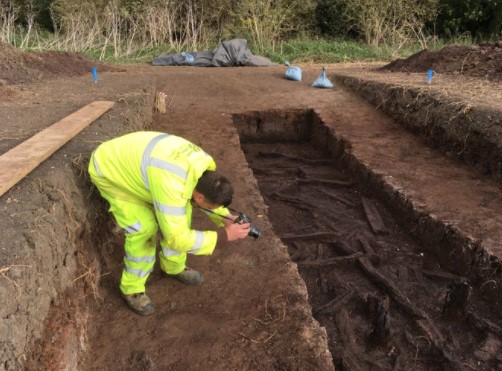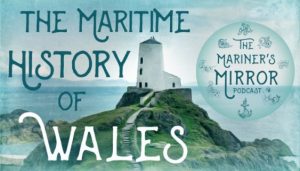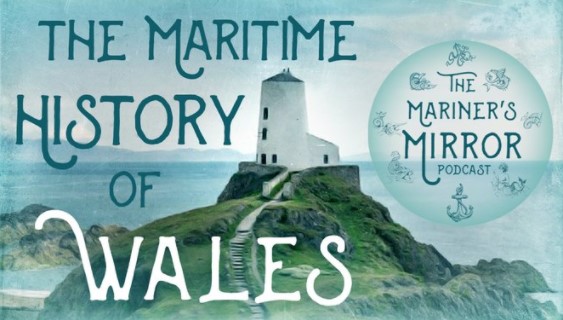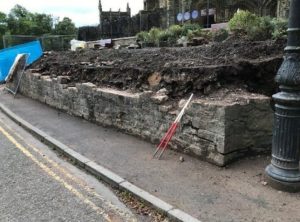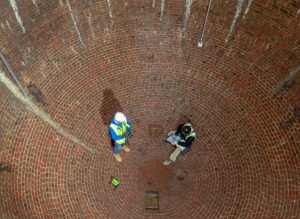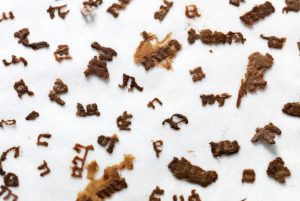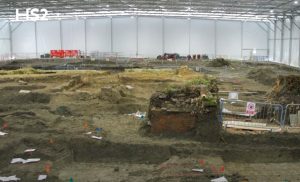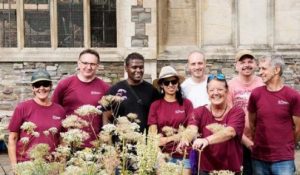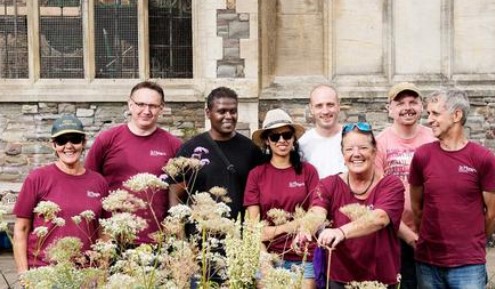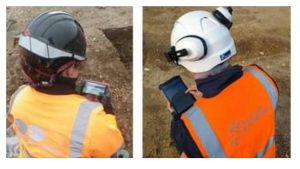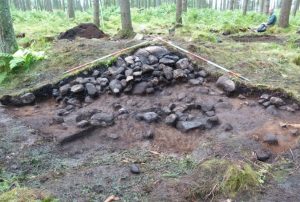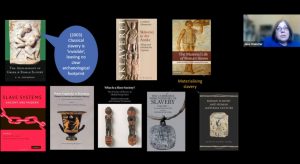News about archaeology and heritage in the UK
Week ending 21st November 2021
Sutton Hoo of the north: £10.4m visitor centre to celebrate Anglo-Saxon site at Ad Gefrin/Yeavering
Ad Gefrin was the summer home of the kings Æthelfrith and Edwin and his queen consort, Æthelburga, as well as the saintly Oswald. It was a stage for some of the most momentous events in early northern English history, including the first conversions to Christianity.
Project director Chris Ferguson explains the story behind the construction of the Ad Gefrin centre (Ad Gefrin Centre) in Wooler, Northumberland, which will bring to life the history of the settlement.
Read More: Sutton Hoo of the north: £10.4m visitor centre to celebrate Anglo-Saxon site | Archaeology | The Guardian
How can heritage support the wellbeing of the local community?
Well-City Salisbury is a National Lottery Heritage Funded partnership project supporting people with mental health needs in the Salisbury area on their journey to wellbeing through creative courses and opportunities. The 8-week long creative courses will be delivered by the four project partners – Wessex Archaeology, ArtCareUK, Salisbury Museum and WiltshireCreative
Read More: How can heritage support the wellbeing of the local community? | Wessex Archaeology
Why the construction and development industry today demands real value from its archaeology
The construction industry looks at archaeology very differently today, to how it did, decades ago.
The CIRIA guide on archaeology and construction changes the conversation. Check out CIRIA’s new blog re integrated, collaborative management to create significant commercial and social value for people, projects and places – no less!
Flag Fen – Progress on the Post Alignment
More from the Cambridge Archaeological Unit evaluation at Flag Fen, where they discuss progress on Trench 2 and how they are recording the archaeology. Photogrammetry in progress. CAU Geomatics Officer Donald Horne gathers images to be used for the generation of Trench 2’s 3D modelling. For complex but fragile timber structures, this is an essential first step in the recording process.
Read it here: Flag Fen Projects | Department of Archaeology (cam.ac.uk)
The Maritime History of Wales podcast
5 Episodes dedicated to the maritime heritage around the coast of Wales. In the third episode for example we find out about the mysterious ‘Bronze Bell’ wreck, an early eighteenth-century wreck c.1700, discovered off the coast of Tal-y-Bont, Cerdigion, in 1978. The wreck is very distinctive due to the 65 tonnes of Carrera marble and heavy armaments found on board, as well as the bronze bell for which it was named. The wreck has been investigated as part of the Welsh Climate Change and Coastal Heritage project ‘CHERISH’.
LISTEN HERE: Mariner’s Mirror Podcasts Archive – SNR
New light shone on Jedburgh skeletons
Forensic work has been carried out on two 200-year-old human skeletons and other human and animal bone fragments found while carrying out work on the retaining wall at Jedburgh Abbey in 2020. The report was produced by Heritage and Archaeological Research Practice Limited (HARP), which was commissioned by the council and the Jedburgh Conservation Area Regeneration Scheme.
READ MORE: New light shone on Jedburgh skeletons | The Southern Reporter
Scoping Culture and Heritage Capital
What value can we place on culture and heritage? How do values change for different audiences? What happens to a historic site’s value if it is altered or developed?
Dr Sadie Watson & Dr Emma Dwyer of MOLA are delighted to be part of a research team co-funded by the Department for Digital, Culture, Media and Sport and Arts and Humanities Research Council – AHRC, and led by UAL: University of the Arts London, working to answer these complex and important questions.
Find out more HERE: Scoping Culture and Heritage Capital | MOLA
New book tells the story of the painstaking process to preserve the 1,200-year-old Faddan More Psalter
The 2006 discovery of an entire early medieval manuscript, entombed in a wet time capsule for so long, was unprecedented, said the National Museum of Ireland. This article explains how the find set off a five-year journey of conservation to retrieve and preserve what lay beyond: a 1,200-year-old psalm book in its original cover. And presents the new book on this remarkable of feat of conservation
READ MORE: ‘It was terrifying’: ancient book’s journey from Irish bog to museum treasure | Museums | The Guardian
Two CIfA Tea Break (Evening) talks – 2nd December
 CIfA accreditation and assessing ethical competence
CIfA accreditation and assessing ethical competence
The way we assess competence for CIfA applications is changing, with changes to the criteria we use to assess applications for Practitioner, Associate and Member grades as well as the introduction of a professional review for Member applications. The changes will come in from April next year so if you’re planning to upgrade your membership, this is an opportunity to find out more about the new requirements and the support that will be available to help you make a successful application. And if you know someone who isn’t a CIfA member and is thinking of applying, why not invite them along as well!- Informal neurodiversity network
Over the past year CIfA has been attempting to raise awareness of neurodiversity and archaeology. Through training events, social media campaigns, tea breaks and lived experiences we’d tried highlight the different ways we can support each other and our colleagues to be able to work at their best, but has this made a difference? At this evening tea break we’d like to have a look back over the year and see if things have changed in any way. We’d also like to look at the year ahead and find out what you think we could do next. - If you can’t make it but would like to be added to our informal email group to get future info please contact alex.llewellyn@archaeologists.net
Its all free and open to non-members as well. They just need to book in Evening chat | Chartered Institute for Archaeologists
HS2 archaeology: Bringing communities behind the hoarding
If you didn’t get the chance to visit the St Mary’s Church Field Museum dig this summer, you can watch a short film about the Field Museum. Inside a specially constructed tent the size of a football pitch, archaeologists working on behalf of HS2 from LP Archaeology excavated the remains of the former parish church of St. Mary the Virgin
Hear from local visitors to the temporary museum inside the tent, on what the finds mean to them. And, from Neil Redfern, Executive Director, Council of British Archaeology, on the wider role the museum plays.
Watch Here:
New Pilot Scheme Explores Inclusive Ways to Empower Community Organisations Across England and Scotland
READ MORE: New Pilot Scheme Explores Inclusive Ways to Empower Community Organisations Across England and Scotland | Historic England
Cotswold Archaeology and Oxford Archaeology announce partnering on the further development of a web-based digital recording and mapping system for archaeological fieldwork
Building on pioneering work undertaken by Oxford Archaeology, the system will henceforth be jointly owned by the two charities, and they have committed to a programme to enhance the functionality and range of site data that can be ‘born digital’.
The initial iteration of the system is currently being used on joint venture projects delivered by Oxford Cotswold Archaeology (OCA) JV, such as High Speed 2 and Lower Thames Crossing, as well each partner’s individual projects.
READ MORE: Cotswold Archaeology and Oxford Archaeology to further develop site-based digital recording
By Murray Cook with contributions from David Connolly, Gordon Cook, Martin Cook, Anthony Dickson, Stuart Dinning, Rob Engl, Jamie Humble, Hana Kdolska, Joanna Lawrence, Therese McCormick, Ann MacSween, Gary Stratton and Fiona Watson
READ FULL REPORT: Archaeology Reports Online 47 from GUARD
Seeing Slavery in Roman Britain – The 10th Joan Pye Lecture, with Dr Jane Webster
The Roman Research Trust is a charity that supports research and promotion of all aspects of the archaeology of Roman Britain. Neil Holbrook, Cotswold Archaeology CEO, is the current chair of the charity. Every two years the Trust sponsors a public lecture, and this year you can watch it free
“Vegetus has received the girl Fortunata, or by whatever name she is known, in good health… she is not warranted to run away… See that you do everything to turn that girl into cash” Seeing Slavery in Roman Britain, with Dr Jane Webster
Watch Here:
https://youtu.be/D36LJAV69gs
Fun Finds from CFA
Who remembers these?? He's lost his parachute and was found during clearance of an ice house – no doubt a child was pretty sad to lose him that day! #FindsFriday pic.twitter.com/XVZiFbYt00
— CFA Archaeology Ltd (@cfa_archaeology) November 12, 2021

